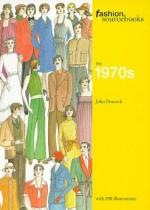|
This section contains 230 words (approx. 1 page at 300 words per page) |

|
For decades Congress had been a forum for party politics. Powerful party politicians, like Sam Rayburn or Lyndon Johnson, made national reputations for themselves by strong-arming congressmen and senators to vote the party line. In the 1970s that changed. As more and more voters registered independent or crossed party lines, congressional candidates relied less and less on the Democratic or Republican party to get elected and they kept their independent perspective if they won. The Ninety-fifth Congress (1977—1979) was particularly independent. Disgusted with Watergate, voters turned dozens of incumbents out of office in 1974; twenty-six representatives and eight senators—a modern record—retired in 1976; 43 percent of representatives in the House were newcomers in 1978. These new members of both houses were young and outspoken, refusing to defer to the party system, congressional seniority, or the president. The new members of Congress...
|
This section contains 230 words (approx. 1 page at 300 words per page) |

|




